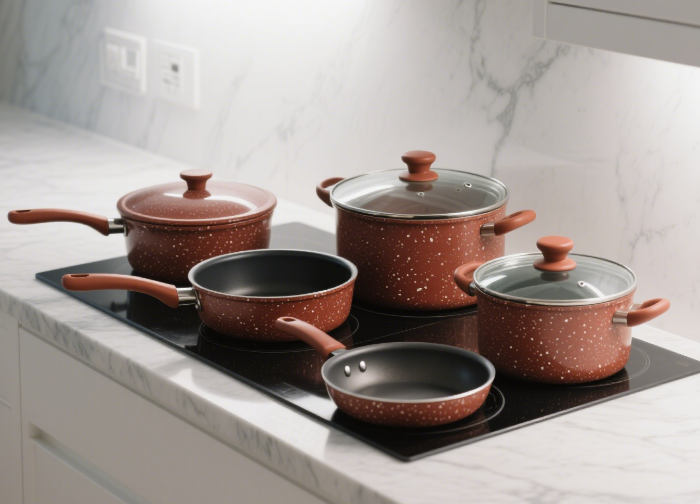Aluminum Cookware Manufacturer: Safety Guidelines
Sep 25, 2025
At Wantong, serving as both an aluminum cookware manufacturer and wholesale cookware supplier, we understand that producing quality cookware is only part of the story. Equally important is helping you use it safely. Aluminum cookware offers outstanding heat conductivity and durability, but proper use and maintenance are essential to protect both the product and your health. Here we are going to share comprehensive safety guidelines for using aluminum cookware effectively.
Understanding Aluminum Cookware Safety
Health Perspectives
Aluminum is lightweight and conducts heat efficiently, making it popular worldwide. However, some users have concerns about aluminum leaching into food. Health authorities, including Health Canada, note that normal use of aluminum cookware is generally safe. The typical daily contribution from aluminum cookware is about 1–2 mg, which is far below the 50 mg daily limit considered safe.
Key takeaway: Using aluminum cookware properly, especially anodized or coated types, poses minimal health risks.

Types of Aluminum Cookware and Safety
1. Bare Aluminum
Lightweight and affordable but more reactive with acidic or salty foods.
Prolonged cooking with acidic ingredients (tomatoes, lemon juice) may slightly increase aluminum leaching.
2. Anodized Aluminum
Hard-anodized aluminum is treated to create a non-reactive, durable surface.
Resistant to corrosion, scratches, and more acidic foods.
Recommended for everyday cooking and commercial kitchen use.
3. Nonstick Coated Aluminum
Often combined with anodized layers for extra protection.
Safe when used according to manufacturer instructions, avoiding overheating.
Tip: Always check product specifications from your Aluminum Cookware Manufacturer to ensure the type meets your cooking needs.
Ideal Practices for Cooking
1. Avoid harsh Heat
Aluminum distributes heat quickly; high temperatures can burn food or damage nonstick coatings.
Use medium heat for more dishes to maintain both cookware life and food quality.
2. Use Appropriate Utensils
Avoid metal utensils that can scratch the surface.
Use wooden, silicone, or heat-resistant plastic tools.
3. Cooking Acidic Foods
Limit long-term simmering of highly acidic foods in bare aluminum pans.
Anodized or coated aluminum can handle acidic ingredients safely.
4. Limit Storage in Cookware
Do not store leftover food in aluminum pots or pans for extended periods, especially acidic dishes.
Transfer cooked food to glass or ceramic containers for storage.
Cleaning and Maintenance Tips
Wash aluminum cookware with mild dish soap and soft sponges.
Avoid abrasive cleaners or steel wool, which can damage the surface.
For anodized or nonstick cookware, hand-wash when possible to prolong lifespan.
Remove discoloration with a mixture of water, baking soda, and vinegar for natural cleaning.
Pro tip: Regular maintenance prevents food sticking and extends the cookware’s durability.
How to Choose a Safe Aluminum Cookware Manufacturer
When sourcing aluminum cookware, especially from a Wholesale Cookware Supplier, consider these points:
Certification Compliance
Look for ISO 9001. FDA, or LFGB certifications to ensure quality and food safety standards.
Material and Surface Treatment
Confirm anodization, coating, or non-reactive finish specifications.
Maintenance Guidance Provided
Trusted manufacturers provide clear care instructions, cleaning tips, and warranty coverage.
Wantong combines these elements, offering cookware that is both safe and long-lasting for commercial and home kitchens.
Using aluminum cookware safely requires understanding its material properties, choosing the right type, and following proper cooking and maintenance techniques. As a professional wholesale cookware supplier, Wantong ensures that our products meet global safety standards while providing guidance for long-term use. By following these guidelines, you can enjoy the benefits of aluminum cookware—efficient heat distribution, lightweight design, and durability—without compromising safety.
 English
English русский
русский Français
Français Español
Español Português
Português عربى
عربى














